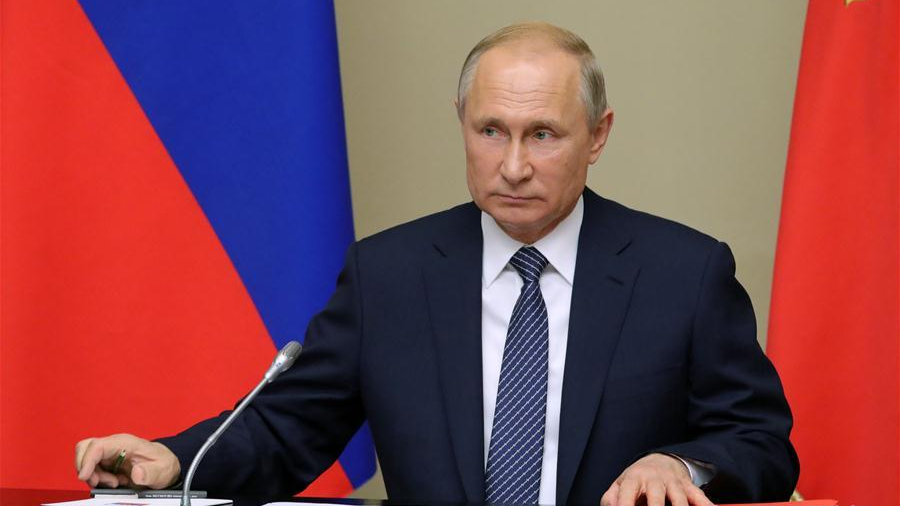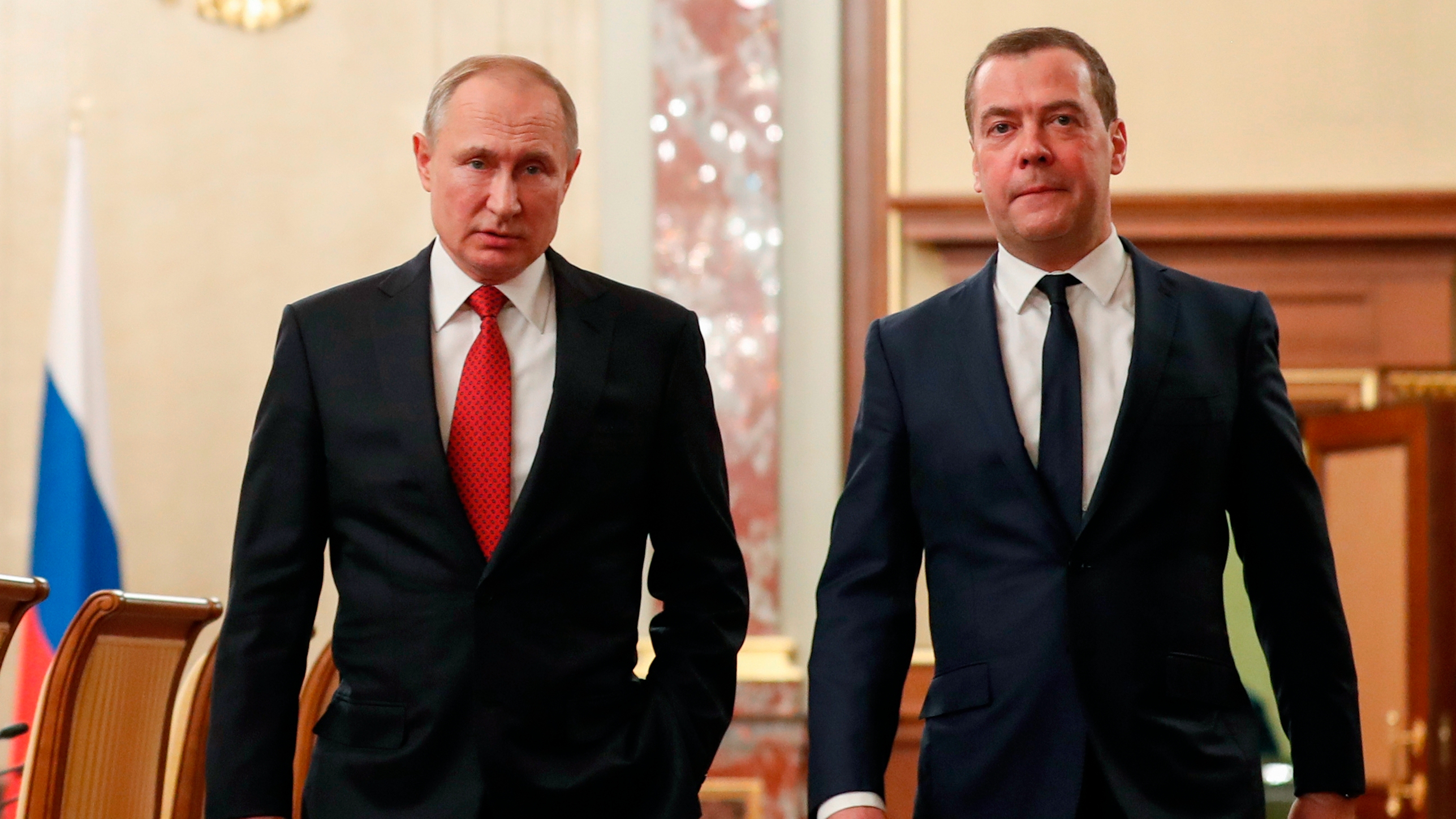
Russian President Vladimir Putin chairs a Security Council meeting in Moscow, Russia, August 5, 2019. /Xinhua Photo
Russian President Vladimir Putin chairs a Security Council meeting in Moscow, Russia, August 5, 2019. /Xinhua Photo
Russian President Vladimir Putin submitted a package of constitutional amendments on Monday that will create a new center of power outside the presidency to the Russian State Duma, the lower house of parliament, the Kremlin said in a statement Monday.
The reforms, aimed at improving the regulation of certain aspects of public government organization, include giving parliament the power to name the prime minister and limiting the president to only two terms in total.
Read more
Behind Putin's bid to shift Russia's balance of power
Putin proposes national referendum on constitutional amendments
In draft amendments, Putin offered a glimpse of how his reforms look on paper. Under his plan, some of the president's broad powers would be clipped and parliament's powers expanded.
In one of the biggest changes, the status of the State Council, now a low-profile body that advises the president, would for the first time be enshrined in the constitution.
Putin, 67, has not disclosed what he plans to do once he leaves the Kremlin. One option could be to head the beefed-up State Council once he leaves the presidency.
Under his proposals, the president would pick the make-up of the State Council which would be handed broader powers to "determine the main directions of domestic and foreign policy."
Putin first became president in 2000 and is now in his fourth term as head of state.

Russian President Vladimir Putin (L) and outgoing Prime Minister Dmitry Medvedev in Moscow, Russia, January 15, 2020. /AP Photo
Russian President Vladimir Putin (L) and outgoing Prime Minister Dmitry Medvedev in Moscow, Russia, January 15, 2020. /AP Photo
Local media reported that Duma will review the amendments on January 23.
Earlier on January 15, Putin proposed a national referendum on amendments to the country's constitution in his annual state of the nation address to the Federal Assembly.
The amendments to the country's constitution are aimed at increasing the powers of the parliament, making lawmakers responsible for choosing the prime minister and senior cabinet members.
"I consider it necessary to conduct a vote by the country's citizens on an entire package of proposed amendments to the country's constitution," stated Putin. "This will increase the role and significance of the country's parliament."
Former Russian Prime Minister Dimitry Medvedev, shortly after Putin's state of the nation address, announced that his government was resigning to give Putin room to carry out constitutional amendments.
Medvedev said Putin's proposals would make significant changes to the country's balance of power, and so "the government in its current form has resigned."
(With input from Xinhua, Reuters)